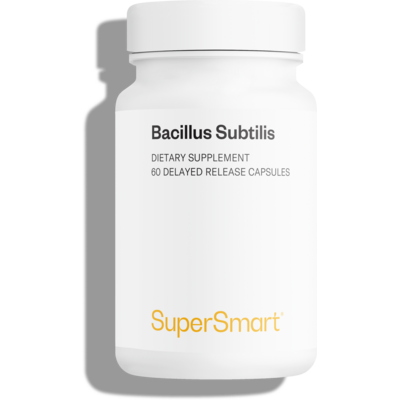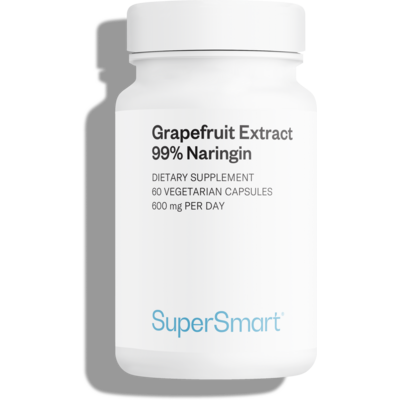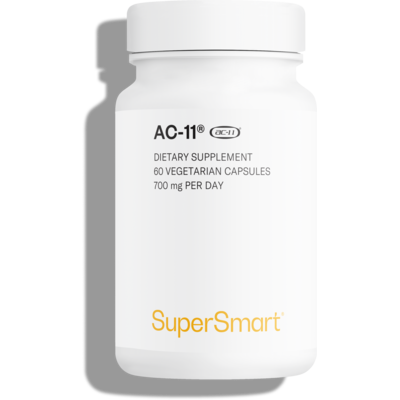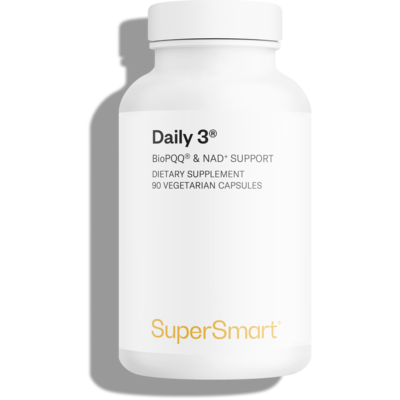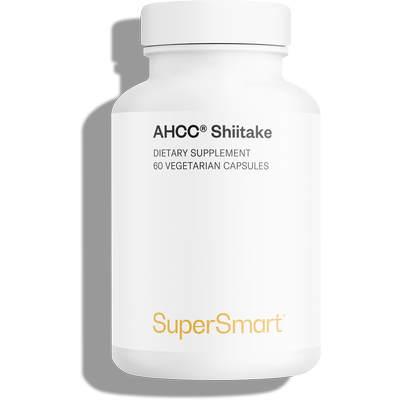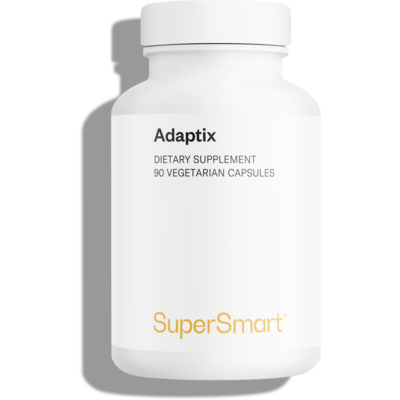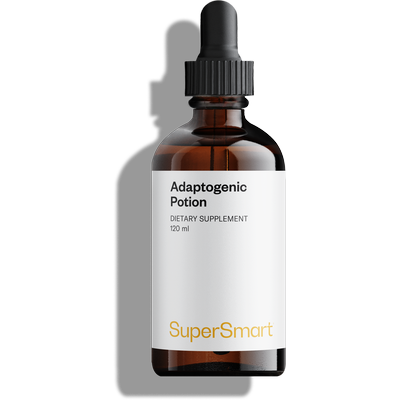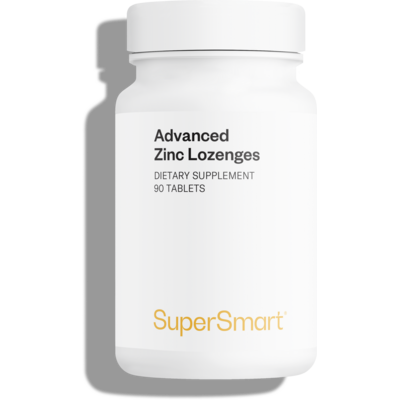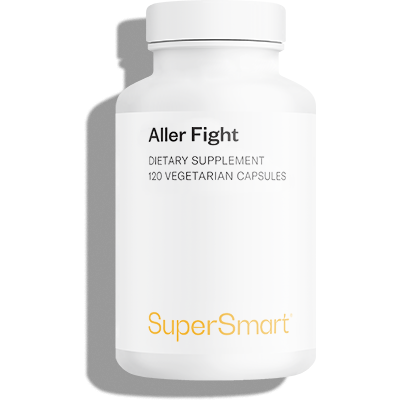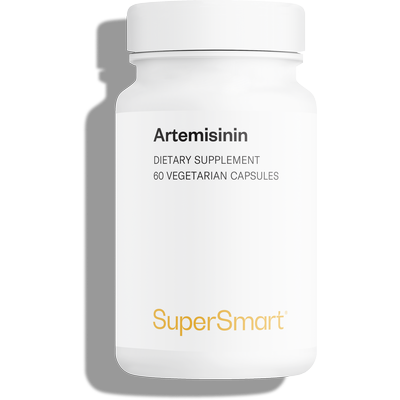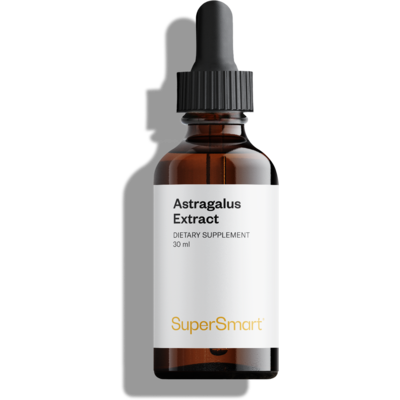Immune System: 5 Dietary Supplements to Support Your Body’s Natural Defenses*
Learn how the body’s immune system functions and explore the 5 key supplements that help maintain this essential natural defense.*
Immunity: A Sophisticated System
From birth, the body is equipped with various mechanisms to defend itself against external threats and pathogens, collectively referred to as innate immunity.
Acquired over millions of years of evolution and passed from mothers to babies during pregnancy, innate immunity comprises a variety of cells and proteins. Key components include macrophages, neutrophils, monocytes, dendritic cells, cytokines, and interferons. Most notably, innate immunity is non-specific and does not rely on prior exposure to infectious agents.
Throughout life, the body encounters various infectious agents and learns to develop specific defenses against them. This process is known as acquired or adaptive immunity.
The primary components of acquired immunity are B lymphocytes, which produce antibodies; CD8+ T lymphocytes, which target and destroy infected cells; and CD4+ T lymphocytes, also known as helper cells, which activate B lymphocytes.
When the body encounters an infectious agent, acquired immunity allows it to produce specific antibodies tailored to combat the agent effectively, as well as memory cells. These memory cells reside in the bone marrow and can rapidly transform into cytotoxic T lymphocytes if the same infectious agent appears again. This defense mechanism enables the body to respond more quickly and effectively to future infections.
The principle behind vaccination relies on acquired immunity: it primes the body to deploy its defenses when faced with an actual infection. Vaccines achieve this by exposing the immune system to a harmless form of the pathogen—such as an inactivated or weakened version, a specific protein from the pathogen, or its messenger RNA—allowing the body to build immunity without causing illness.
This system is both complex and delicate: factors such as oxidative stress, aging, and certain health conditions can lead to weakened immune function. Fortunately, dietary supplements are available to support immunity and help maintain the proper functioning of your body’s defenses.* Here are 5 key options to consider.*
Vitamin D and Your Body’s Natural Defenses
Vitamin D supports mucous membrane defenses by stimulating the expression and secretion of antimicrobial peptides by monocytes and macrophages. It also promotes the synthesis of anti-inflammatory cytokines while helping to regulate and inhibit the production of pro-inflammatory cytokines.*
Numerous studies suggest that insufficient vitamin D levels are often associated with an increased risk of respiratory challenges, while supplementation with vitamin D has been shown to help support respiratory health.*
In a 2024 article, Time magazine discussed the use of vitamin D supplements, noting that while many experts suggest that a balanced diet is generally more beneficial than supplements, we may benefit from them.* The article mentions that vitamin D may benefit older adults and those with limited sun exposure.*
This is particularly relevant as factors such as aging, obesity, and reduced sunlight exposure during winters, especially in northern states, can contribute to vitamin D deficiencies.*
Since vitamin D is known to support normal immune system function, increasing your intake during winter can be beneficial. Consider supplementing with Vitamin D3 5000 IU or using a Vitamin D3 2000 IU spray for convenient daily support.*
Reishi: A Supplement to Support Your Immune System*
Reishi, scientifically known as Ganoderma lucidum, is a mushroom that has been a cornerstone of traditional Chinese and Japanese medicine for thousands of years. Its global popularity surged in the 1970s when cultivation techniques were developed.
Several studies suggest that consuming reishi may contribute to an increase in natural cytotoxic lymphocytes, key agents of innate immunity, and help support normal levels of CD4 and CD8 T lymphocytes.*
Scientists suggest that the specific polysaccharides in reishi may play a key role in supporting innate immunity.* To explore these mechanisms further, the European Union recently funded a large-scale study involving researchers from academic institutions as well as the agro-food and pharmaceutical industries, focusing on the connection between non-digestible polysaccharides and the immune system.
This research indicated that these polysaccharides may activate certain genes associated with immunity and support the growth of specific bacteria in the colon, potentially contributing to overall health.*
To experience the potential benefits of reishi and other mushrooms, consider a synergistic formulation that combines several organic mushroom extracts, including reishi, shiitake, chaga, and cordyceps - such as Organic MycoComplex.*
Zinc: Potential Benefits for Immunity*
Zinc is a vital trace element that must be obtained through the diet. It plays an important role in supporting growth, neurological health, and immune function.*
To understand zinc’s role in the body, scientists studied the impact of insufficient zinc levels. They observed that inadequate zinc intake may contribute to increased inflammation by disrupting the proper functioning of immune cells, which can intensify inflammatory responses instead of regulating them.*
The same researchers identified a connection between inadequate zinc intake and increased inflammatory responses, including chronic inflammation, which is commonly observed in older individuals.*
This essential trace element plays a key role in maintaining normal immune system function. Supplementation may be particularly beneficial for older individuals and vegans, as the foods highest in zinc are primarily derived from animal-based proteins.*
To maintain adequate levels of this trace element, consider a supplement that provides a highly bioavailable form of zinc, such as Zinc Orotate.*
A Powerful Trio of Plants for Supporting Overall Wellness
Alongside vitamins and essential trace elements, several plant extracts available as dietary supplements can help support the body’s natural defenses and contribute to overall physical and mental well-being.*
One such plant is astragalus, a staple of traditional Chinese practices, known for its content of non-digestible polysaccharides. At SuperSmart, we recommend consuming the whole root of astragalus in the form of a glycerine liquid extract, diluted in a glass of water. You can try our Astragalus Extract for this purpose.*
Ginseng, a cornerstone of traditional Chinese medicine, contains ginsenosides—active compounds with powerful antioxidant properties.* These compounds help support the immune system and enhance vitality.* To maximize the benefits, choose a supplement with a high ginsenoside content, such as our Super Ginseng.*
Finally, echinacea, a member of the aster family, is renowned for supporting the body’s natural defenses and offering relief for occasional throat discomfort. It’s a valuable companion during the winter months and the star ingredient in our Immunity Booster formulation.*
Vitamin C: The Essential Leader in Immune Health*
A time-honored favorite and “grandma’s remedy” for winter wellness, vitamin C is widely regarded as one of the immune system’s greatest allies.*
Since the body cannot produce it, this powerful antioxidant must be obtained through diet. It plays a key role in protecting cells from oxidative stress and acts as a cofactor in biosynthesis and gene regulation.*
With its antioxidant properties, it strengthens the body’s natural defenses and is also found in white blood cells, enhancing their ability to target external threats.* Furthermore, it supports the process of apoptosis, helping to eliminate senescent or dysfunctional cells.*
Recent findings show that, like zinc, inadequate levels of vitamin C are associated with a higher risk of infections.* Infections, in turn, can deplete the body’s vitamin C levels, creating a vicious cycle.*
It turns out our grandmothers were onto something: vitamin C does indeed support healthy immune system function.* To ensure adequate intake, it’s important to include plenty of raw fruits and vegetables in your diet all year-round—especially options like white and red cabbage, which are rich in this essential vitamin. Adding a high-quality vitamin C supplement to your routine can also help boost your intake.* For instance, you might consider our Triple C supplement.*
Explore our range of dietary supplements for inner balance, cardiovascular health support, blood sugar management, and cholesterol health.

